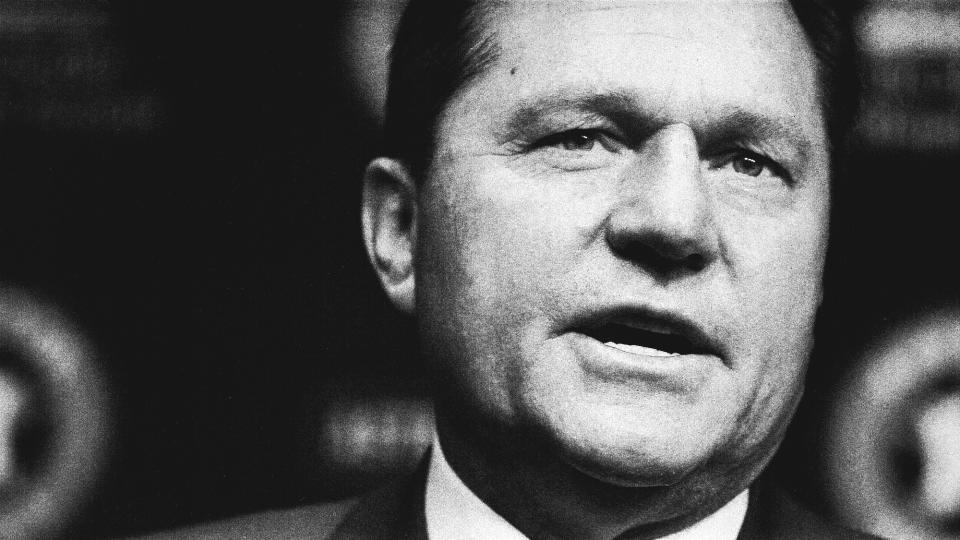Inside MLB super agent Scott Boras' dreadful winter

For nearly 40 years, baseball executives have been tormented by Scott Boras, long the most feared player agent in the sport. His brinkmanship on behalf of his clients almost always paid off handsomely with large contracts. Boras' calling card was unapologetic player boosterism, including glossy, book-length treatises about their on-field exploits and future canonization and a willingness to stare down teams during negotiations without blinking. In 1998, the New York Times dubbed him "the most hated man in baseball."
But Boras' strategies have not been working as well as of late, with the 2023-2024 offseason looking like a disaster for some of his clients, including outfielder Cody Bellinger, pitchers Jordan Montgomery and Blake Snell, and third baseman Matt Chapman. These players were unable to secure the long-term contracts they were anticipating and had to settle for shorter deals. Is the Boras era over?
A long climb to the top
A former ballplayer who topped out in Double-A in 1977, Boras went to law school and practiced as a defense attorney before getting his big break as a baseball agent. That break happened after the 1984 season, when he negotiated a five-year, $7.5 million contract with the Toronto Blue Jays for his former minor league teammate, relief pitcher Bill Caudill.
Caudill turned out to be a terrible investment as a player, but that did not blunt Boras' momentum to the pinnacle of the sport's agent hierarchy. Beginning in the early 1990s, Boras was responsible for negotiating many of the game's most lucrative contracts, including the five-year, $57 million contract for future Hall of Fame pitcher Greg Maddux prior to the 1998 season, and the deal that was at the time the largest contract in professional sports history, the 10-year, $252 million pact that infielder Alex Rodriguez signed with the Texas Rangers in 2000.
Boras also represented amateur players and pioneered hardball negotiations with teams trying to sign their draft picks. Once such tactic was refusing to sign and then having the player suit up for independent league teams, as happened with outfielder J.D. Drew, the second overall pick in the 1997 amateur draft, who went to play for the St. Paul Saints rather than sign with the Philadelphia Phillies.
The analytics revolution vs. Scott Boras
Over time, Boras negotiated a number of contracts that ended up being catastrophes. In December 2006, Boras negotiated the largest contract ever awarded to a pitcher for Barry Zito, who signed with the San Francisco Giants for seven years and $126 million. The booklet that Boras assembled for Zito projected that he would end his career as one of the all-time greats. Instead, Zito was a mess over nearly his entire tenure with the Giants, one of the worst value-for-investment outcomes since the free agency era began.
Fast forward almost twenty years, and today almost every team in baseball has an enormous analytics operation designed to predict future player performance and avoid Zito-sized mistakes. And it turns out that Boras's booklets aren't working the same magic because front offices can see through the gloss. For example, outfielder Cody Bellinger, one of Boras' players, won the Comeback Player of the Year award last year with the Chicago Cubs, with eye-popping surface statistics. It was a feel-good story that seemed to prime him for a big payday.
But underneath the hood, teams didn't like what they saw. ESPN's Kiley McDaniel predicted that Bellinger would get a seven-year, $147 million deal. Instead, faced with limited interest, Bellinger had to settle for a three-year, $80 million pact with the Cubs that allows him to opt out after the first and second seasons.
Another Boras' client, Blake Snell, the defending National League Cy Young winner, reportedly turned down a $150 million contract from the Yankees and had to settle for a two-year contract with the Giants, a pattern repeated with Boras clients Jordan Montgomery and Matt Chapman.
It may be true that Boras "took some big hits," said Buster Olney at ESPN. And some consider him the "biggest loser" of the offseason, said Zachary Rymer at Bleacher Report. But until Boras starts losing clients, it is too early to say if his reign is over.

